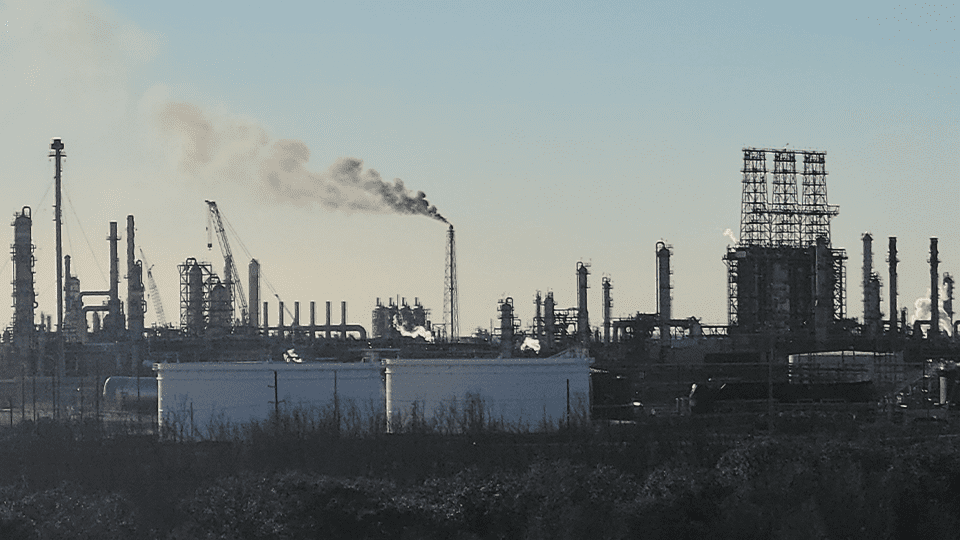NEWS RELEASE:
Millions of Pounds of Air Pollution Released Because of Grid Failure, Freeze in Texas
Many Houston-Area Facilities Also Emitted Harmful Chemicals During Hurricane Harvey
(Houston, TX – February 23, 2021) Oil refineries, petrochemical plants and other unprepared industrial facilities in Texas reported releasing an estimated 3.5 million of pounds of extra pollution into the air during the state’s electric grid failure and freezing temperatures last week.
Nearly 200 facilities in 54 counties reported releases of toxic chemicals between February 11 and Monday, with nearly one-fifth of the excess pollution occurring in the Houston region. Many releases in the Houston area came from facilities that also reported airborne emissions that exceeded state limits in the days after Hurricane Harvey in 2017, an analysis by Air Alliance Houston, Environment Texas and Environmental Defense Fund shows.
“Texas is not ready for increasingly extreme weather, and the state’s failure to prepare is hurting communities, especially those near high-risk chemical facilities,” said Elena Craft, senior director for climate and health at Environmental Defense Fund. “Air pollution compounds the health and economic harms in a state that already leads the nation in billion-dollar disasters fueled by climate change. We need government at all levels to ensure companies take the necessary steps to guard against these disasters and protect their neighbors.”
The burdens fall most heavily on Black and Latino households, which are more likely to have chemical facilities nearby than the nation as a whole. That is because discriminatory policy and planning decisions have created areas of concentrated industrial pollution.
“The health and safety of every Texan matters. Yet corporations repeatedly engage in behaviors that put the most vulnerable communities in harm’s way, and the state rarely holds them accountable, choosing to protect profits over people,” said Bakeyah Nelson, executive director of Air Alliance Houston. “This is untenable, especially for communities of color and working-class neighborhoods. These communities are unable to fully recover before the next man-made disaster due to a long history of environmental racism that has put them at greater risk of suffering the adverse impacts from disasters and with fewer resources to rebuild their lives. For too long, Texas decision-makers have treated them as expendable while giving fossil fuel corporations everything they want. We need leaders who are willing to accept the realities of climate change and take aggressive steps toward a more equitable and sustainable future.”
In their initial reports to state regulators, corporations cited power outages, system failures and shut downs, among other reasons, for the releases of extra pollutants. In one case, an industrial facility near Beaumont, Texas, reported sending 262,522 pounds of methane into the air in less than two hours on February 16.
The Texas Commission on Environmental Quality, meanwhile, reported power failures or communications problems at 39 of its air quality monitors, including 14 in the Houston area. The agency said it would send mobile monitoring units to the Beaumont area Monday.
“Corporations can do more to prevent these major releases of toxic chemicals into the air we breathe,” said Catherine Fraser, clean air associate at Environment Texas. “It is inexcusable for them to be unprepared, repeatedly, for extreme weathers events. We know more storms are coming, and those who fail to prepare should face more severe penalties.”
CONTACT:
Matthew Tresaugue, Environmental Defense Fund, (713) 391-7888 or [email protected]
Riikka Pohjankoski, Air Alliance Houston, (346) 279-7000 or [email protected]
Catherine Fraser, Environment Texas, (612) 963-0228 or [email protected]
###

